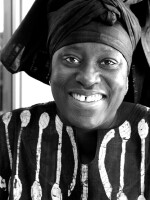STEVE INSKEEP, host:
The United Nations secretary-general is visiting Darfur today. Ban Ki-moon has been traveling through Sudan and today he arrives in the western region of country, scene of what the U.S. has called genocide.
Secretary-General BAN KI-MOON (United Nations): I'm working to hasten the day when there is a peace throughout Sudan, including Darfur. There can be no military solution to this conflict. Therefore, we need to cease fire right away.
INSKEEP: NPR Ofebia Quist-Arcton is following this story. And, Ofebia, why would he go to Darfur now?
OFEBIA QUIST-ARCTON: Well, this is Ban Ki-moon's first visit to Darfur since he became U.N. chief at the beginning of the year. And finally, after lots of to-ing and fro-ing under the former U.N. Secretary-General Kofi Annan and for the first few months of Ban Ki-moon's term as secretary-general, finally Sudan has agreed to what they're calling a hybrid force. So it will be United Nations peacekeeping force and African Union soldiers, because the 7,000 African soldiers who, for the past few years, have been trying to keep the peace in Darfur have been totally outnumbered and totally woefully equipped even to protect civilians or humanitarian workers.
So this is very much Ban Ki-moon, the pragmatist as he calls himself, going onto the ground to see the conditions for himself.
INSKEEP: So we should mention these are, in theory, his troops going in there, but, of course, the United Nations has no troops. Where are the soldiers coming from and how significant a difference can they make?
QUIST-ARCTON: There's still a big question mark over that, Steve, because it is meant to be an international force that will be African and international. But the African Union Commission chairman last month said that enough African countries had committed troops to make it a fully African force.
Now, that seems to go against what Washington and others are saying that the Africans well done, but they don't have the logistics, they don't have the airlift power; they don't have some of the essential things that are needed for a peacekeeping force that is going to make a difference.
For the past three, four years in Darfur, it hasn't happened. Many people have criticized the Africans, but of course they don't have either the hardware, the logistics and so on to make that sort of difference. So the end of August was the deadline for people to commit troops. That hasn't quite happened and they've extended that to see who else will commit things like hardware and technology to make this force a force that can, A, keep the peace, if there is a peace to keep, and especially protect civilians, because two million of them have been displaced, not to talk of the 200,000 who have died in Darfur.
INSKEEP: Are you saying that after all the years of delay, or what some people saw as delay on Darfur, there could be more delay?
QUIST-ARCTON: Well, we're told that these peacekeepers are going to start deploying from next month, October. But 26,000, it will be the biggest peacekeeping force the UN has ever had in the world and they're meant to be in place by the end of the year. But, you know, there's been a lot of foot dragging up until now by the Sudanese government, which to'd and fro'd, said yes and then no, and then resisted any more troops other than Africans being deployed to Darfur.
But it's not just the government side and the pro-government Janjaweed militias that the U.N. wants to curb. It's also the rebels. And there isn't agreement amongst the rebels. Some of them have agreed with the government, but there are some who are outside that agreement. We've got to get to that stage. So there's the diplomatic, the military, the logistics, and then the reality of implementation. Everybody is holding their breaths to see whether it will happen in Darfur.
INSKEEP: NPR's Ofebia Quist-Arcton talking with us about the U.N. secretary-general's visit to Sudan. Transcript provided by NPR, Copyright NPR.







